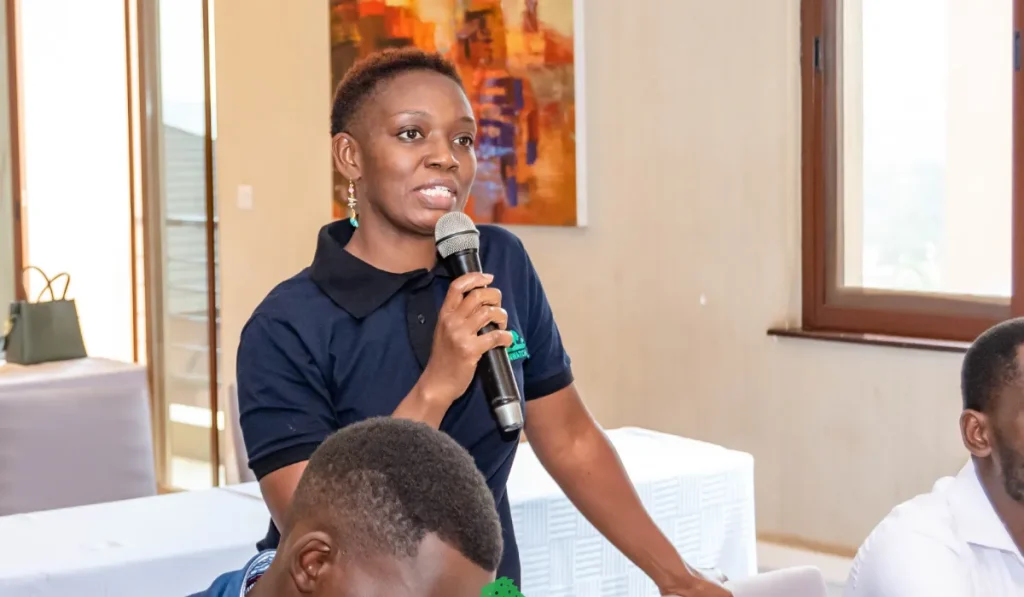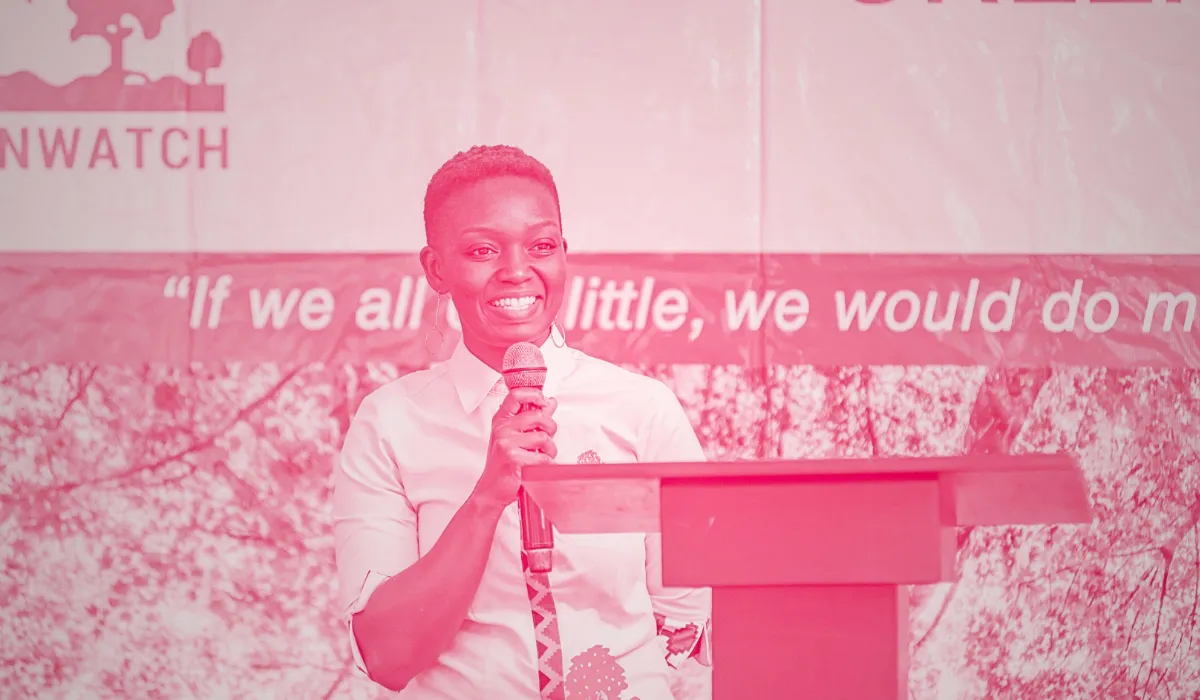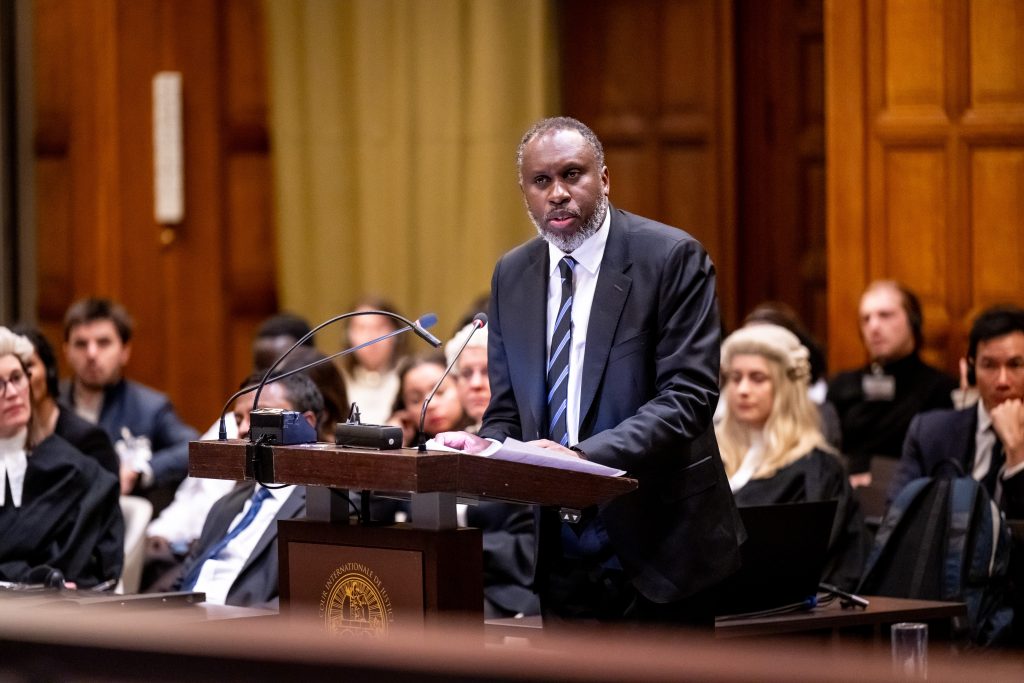What if children could hold their governments accountable over climate change? When Greenwatch began litigation on behalf of four minors against the Ugandan government and National Environment Management Authority in 2012, climate litigation was a fairly new concept. The suit began as a conversation between Greenwatch’s founder Kenneth Kakuru and Julia Olson, the Executive Director for Our Children’s Trust. For Greenwatch’s current Director Samantha Atukunda Mwesigwa, the suit speaks to state inaction: “We’re not really seeing government efforts to secure the future (for African youth). A lot more can be done to curb these effects, to protect the people, to protect their right to a clean environment.”

Almost three decades since it began, Greenwatch has established itself as a leading figure in climate litigation and training. Greenwatch sees climate litigation as a means of setting a legal precedent. If a judge rules in their favour, then it opens the door for other claimants to pursue their own legal recourse. There are questions about who should be held accountable for climate change in the eyes of the law. Mwesigwa is clear on who the liable parties are: “For us, it’s been clear cut. Our climate litigation suits have mainly been against the government, because the state has the responsibility to protect its citizens against violation of rights.” Article 39 of the Ugandan Constitution states that “every Ugandan has a right to a clean and healthy environment.” Article 237 of the Constitution also states that the government must “hold in trust for the people and protect natural lakes, rivers, wetlands, forest reserves, game reserves, national parks and any land to be reserved for ecological and touristic purposes for the common good of all citizens.” Ugandan courts have interpreted these articles as holding the government ultimately responsible for ensuring and upholding the right to a healthy environment and the preservation of that natural environment.
Greenwatch has invoked the Ugandan Constitution in its litigation against the state. In 2004, it took the Ugandan Wildlife Authority to court over its attempts to export chimpanzees to China. Its 2012 suit (Mbabazi and others vs the Attorney General and National Environmental Management Authority) is one of Greenwatch’s more well-known cases. Their argument was simple: The Ugandan government had failed to uphold citizens’ right to a clean and healthy environment, and had failed to address the effects of climate change for current and future generations. Mwesigwa took over the case after the late Hon. Justice Kakuru became a Justice of Uganda’s Court of Appeal in 2013. After years of failed mediation attempts, numerous adjournments and being passed from judge to judge, the case is stuck in limbo. “The judicial system is very slow in Uganda. We take quite some time to get judgement from the court unless there is a political interest,” says Mwesigwa. Issues with the legal system coupled with limited knowledge of climate change and the law have hampered the progression of climate suits and the implementation of climate policy and frameworks. As Mwesigwa puts it: “Yes, we have a climate change policy. Yes, we have a climate change department specifically focused on coordinating with all the other agencies in the government to ensure that they’re climate sensitised. But when we go to those communities that are being affected by landslides, we have not seen the agency of a government move. On the paperwork we have the laws. We have policies. We have the government authorities. But when it comes to actually implementing, that’s where there’s a huge gap.”

Recognising the need for an informed legal system, Greenwatch has developed a training programme to conscientise judicial officers and build their capacity on environmental law and environmental rights. A judiciary informed on the aspects of climate justice and climate action would recognise the significance of climate litigation. For Mwesigwa, the strength of climate litigation lies in this knowledge building. Training people in Uganda’s legal system would help judicial officers understand the concepts in climate litigation and justice, familiarise them with how other jurisdictions navigate climate litigation, and eliminate the need for plaintiffs to explain aspects of their cases. In addition, Greenwatch also recognises the role of media in raising awareness in the public. They also conduct media trainings and “We need to have media for visibility about the different aspects of climate action as well activism. That’s also really important,” says Mwesigwa. She points out that the judicial and media trainings complement Greenwatch’s litigation efforts. “Climate litigation is not sufficient to move what we want to move. We need to have other aspects supporting it.”
Mwesigwa hopes to see more people coming forward to hold governments and corporations accountable in courts of law. As erratic rainfall patterns, increased temperatures become more commonplace, organisations such as Greenwatch can push governments to enact and enforce laws that address the effects of climate change. It’s only when citizens understand that they have the agency and means to advocate for climate action will the law become a powerful tool in their hands.



